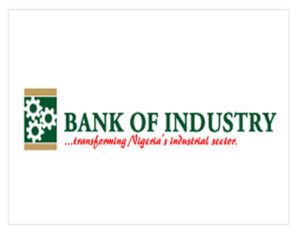Naira appreciates 1.33% at FX market despite low dollar liquidity
By Sodiq Adelakun
Naira experienced a notable appreciation against the US dollar on Tuesday, despite the prevailing low liquidity in the foreign exchange market.
This development, however, comes with mixed implications for the Nigerian economy.
While the strengthening of the naira is a positive sign, the underlying challenges of low dollar liquidity and increased demand for foreign currency remain significant concerns.
The official foreign exchange market witnessed a 1.33 percent appreciation of the naira against the dollar on Tuesday. The dollar was quoted at N745.19, compared to N755.27 on Friday.
This positive movement can be attributed to a moderation in demand for dollars, which led to increased naira strength.
Despite the naira’s appreciation, the foreign exchange market continues to face challenges of low dollar liquidity. The market experienced a decline in daily turnover by 36.54 percent, with only $81.12 million traded on Tuesday compared to $127.82 million on Friday.
This scarcity of dollars hampers businesses’ ability to meet their foreign exchange needs, potentially impacting imports, investments, and overall economic growth.
In the parallel market, also known as the black market, the naira weakened against the dollar due to increased demand.
The dollar closed at N1,005 during evening trading, slightly higher than the morning rate of N1,000. This divergence between the official and parallel markets highlights the existence of a significant informal market for foreign exchange, which can further exacerbate the challenges of low dollar liquidity.
However, the appreciation of the naira against the dollar can have some positive effects on the Nigerian economy. It may help reduce inflationary pressures by making imports relatively cheaper, especially for essential commodities.
The persisting challenges of low dollar liquidity and increased demand for foreign currency pose significant risks to the Nigerian economy.
Businesses relying on imports may face difficulties in sourcing dollars, potentially leading to supply chain disruptions and higher prices for consumers.
Furthermore, the divergence between the official and parallel markets can create arbitrage opportunities, leading to market distortions and potential capital flight.
The appreciation of the naira against the dollar at the official foreign exchange market is a positive development for the Nigerian economy. However, the underlying challenges of low dollar liquidity and increased demand for foreign currency remain significant concerns.
The market opened with the dollar trading at N1,000 on Tuesday as against N1,008 on Friday at the parallel market.
At the money market on Tuesday, the Nigerian treasury bills (NT-Bills) secondary market closed on a mildly positive note with the average yield across the curve decreasing by 1 basis point to 7.27 percent from 7.28 percent on the previous day, a report from the FSDH Research stated.
Average yields across medium-term and long-term maturities declined by 1 basis point each. However, the average yield across the short-term maturities closed flat at 3.69 percent. NTB for June 6, 2024 (-2 bps) maturity bill witnessed mild buying interest.
The CBN held its scheduled Primary Market Auction on September 27, selling NT-Bills worth N177.12 billion across the 91-day (N1.75 billion), 182-day (N1.56 billion), and 364-day (N173.81 billion) tenors.
The stop rates for the 91-day, 182-day, and 364-day tenor cleared lower at 4.99 percent (-151 bps), 6.55 percent (-45 bps), and 11.37 percent (-161 bps), respectively. The auction was heavily oversubscribed by 344 percent, with bid-to-cover ratios settling at 4.05x (91-day), 4.26x (182-day), and 4.45x (364-day).
The Overnight (O/N) rate decreased by 1.95 percent to close at 1.45 percent compared to 3.40 percent on the previous day, and the Open Repo (OPR) rate decreased by 1.70 percent to close at 1.00 percent compared to 2.70 percent on the previous day.




